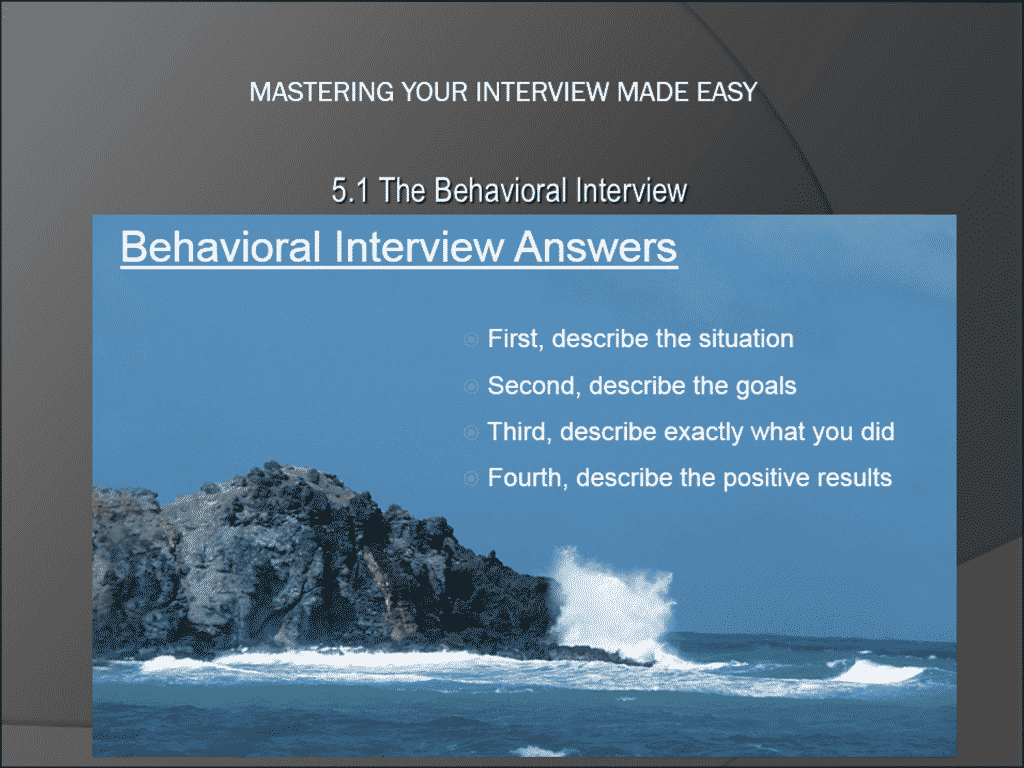The Behavioral Interview – Tutorial
The Behavioral Interview: Video Lesson
This video lesson, titled “The Behavioral Interview,” discusses the format of the behavioral interview. This video lesson is from our interviewing course, titled “Mastering Your Interview Made Easy v.1.0.”
The Behavioral Interview: Overview
This lesson will discuss the behavioral interview. These days, most job interviews are conducted as behavioral interviews. In the behavioral interview, the interviewer asks questions which are based on discovering how a person reacted to a situation in the past. The theory behind the behavioral interview is that past behavior predicts future behavior. Rather than asking questions about your belief system, the interviewer will mostly ask questions about your past behavior.
In the behavioral interview, questions begin with seemingly vague, open-ended phrases. Listen for questions that begin with phrases such as, “Tell me about a time when,” or “Describe a situation where,” or, “Give me an example of.” Even though these questions may appear to be vague, the interviewer is listening for very specific responses.
When answering questions in a behavioral interview, always be sure to include four main points in the same order. First, describe the situation. Second, describe the goals, or what needed to be done. Third, describe exactly what you did, using as many strong verbs as possible. Fourth, describe the positive results of your work.
The Behavioral Interview – Tutorial: A picture of the four points one should make when responding to a question in a behavioral interview.
You should practice answering behavioral questions until the format becomes comfortable and natural. Practicing your answers to behavioral questions in advance will help you to keep from rambling once you’re at the interview. If you do find yourself rambling, simply stop speaking, smile, and say something like, “I’m sorry, I got a little off-track. Did that answer your question?” The keys to success during a behavioral interview are to follow the format and keep your answers concise.


